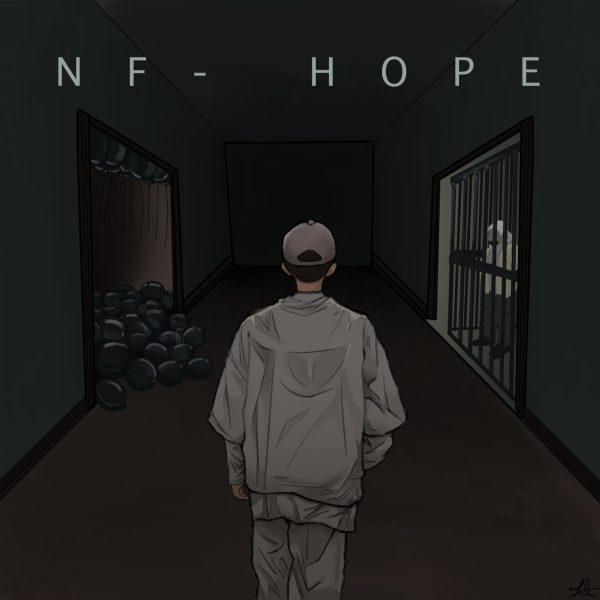America’s Housing Crisis
February 7, 2021
It is easy to disregard the harsh realities awaiting us beyond our diplomas. To pretend that in a time where every news channel you flip through, catastrophe after catastrophe, life as one feverish dream. It is easy to perceive the thought of moving out and beginning our futures, as simply one of intangibility. Though this is not the case. And to fantasize as if the responsibilities awaiting us are not there, simply because they have yet to affect us personally, is an act of ignorance.
Ignorance is bliss for only so long. The day will come when it will be our own heads without roofs to protect. Although many have been quick to discern the nationwide calamity as a product to the global pandemic— due to our nation’s restrictive building codes, unproportional increases in salaries and consequential increase in real estate prices, America’s housing crisis has been the silent killer for quite some time now.
Prior to our national public health dilemma, of the 43 million renters in the U.S., about 20.4 million experienced “cost-burdened” struggles. According to the Joint Center for Housing Studies of Harvard University, “nearly three-quarters of lowest-income renters spend over half of their incomes each month for housing,” leaving families with scarce amounts of money to spend towards basic necessities, such as food and healthcare.
Not only has the COVID-19 pandemic exacerbated the conditions for those in detrimental housing situations, it has become extensive among those it affects. “Between 30 million and 40 million Americans could soon be forced from their homes… after COVID-19 protections and aid packages expire,” says, The Covid Eviction Crisis, an expert memo written by a group of U.S. housing policy specialists consequent to the emergency.
How much longer is it till our premounted restraints challenge the optimism of our youth? Starting now, we need to recognize the holistic dilemma of eviction moratoriums and see that it is but a band-aid solution to a gunshot sized wound.
Economic stimulus packages have protected American renters from eviction, though such solutions are only available to “those who live in a multifamily building or single family home that has a federally backed mortgage,” according to Boston University Today. Once more, a temporary healing to our dire national wound.
To truly acknowledge this crisis, temporary programs such as Housing and Urban Development and Low-Income Housing Tax Credit, must be considered for what they are. Temporary. According to the Joint Center for Housing Studies of Harvard University’s evaluation of HUD, “Although HUD rental assistance programs generally target this [very low income renters suffering from cost burdens and/or living in housing with detrimental insufficiency] income group, they only serve about one of every four (4.6 million) eligible households…The majority of recipients are older adults (35 percent) and families with children (36 percent), or households that include a member with a disability (17 percent).”
As for those with Low-Income Housing Tax Credit, “…almost 30 percent of LMI (lower- middle income) individuals have lost their job, and 44 percent of LMI individuals have experienced a decreased in work hours in as a result of the pandemic,” states Brookings Edu. in Housing hardships reach unprecedented heights during the COVID-19 pandemic. The money in which renter tenants owe is not lifted. Disregarding this aspect of America’s housing crisis because of its momentary support is not enough.
Merely stopping the bleeding of a gunshot wound will not heal it’s internal damage. It is vital now, that we do not dismiss this quandary just because it is being deferred, and instead turn to a long-term solution.
A progressive response to the nation’s housing crisis would begin by educating the local government officials; many of whom have been blinded to the hardships of paycheck-to-paycheck living. Following the rise of an improved housing solution is a communal economic freeze. A freeze on the collection of rents, a freeze on utility payments, and a suspension of mortgage interest on owner-occupied housing. All in which would guide our communities towards the prevention of homelessness and instability.
While national growth may be challenging in the thick of a global pandemic; reflecting on America’s housing catastrophe prior to COVID-19, stimulus checks nearly scratch the surface in basic housing decency. With housing injustice stemming from a multitude of factors; class inequalities, racial inequity, and systematic policies. “After this crisis is over, we will not be returning to anything like the preexisting ‘normal.’ This will be a different country; let’s do everything we can now to ensure that it’s not just a different country, but a better one.”






Steve Adams, RN • Feb 10, 2021 at 4:26 PM
I moved to Los Angeles from Minnesota back in 2012. I was blown away by the cost of housing in SoCal. The apartment we had in Silver Lake was 1,500/month in 2012. In 2017 they raised the rent to 2,020 dollars/month. I should add that for my wife and I with decent jobs, that was an awful lot of money to pay for a one bedroom apartment. I honestly don’t know how a young adult or single mom can afford to live in Los Angeles. I have lived in places like Minneapolis, Dallas, San Antonio, Farmington (NM), Chicago, Boston, Northern Virginia and Wilmington, DE. I have NEVER lived in a place where you have such a gap between the haves-and have nots as Southern California. With the amount of people who have lost their jobs during the pandemic, I cannot even begin to imagine the homeless problem we are going to have in 6 months once the state mandate wears off and landlords will be able to evict tenants.
Nice job on the article. Your school has a great online paper. Take a bow.